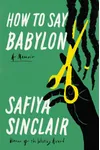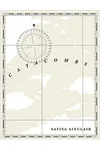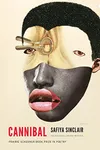Picture a Jamaican poet weaving tales of identity and rebellion through lush, lyrical verses—meet Safiya Sinclair! Born in Montego Bay in 1984, Sinclair emerged from a strict Rastafarian upbringing to become a celebrated voice in contemporary poetry and memoir. Her works, like the award-winning Cannibal and the gripping How to Say Babylon, captivate readers with their raw exploration of exile, womanhood, and cultural history.
With a style that blends vivid imagery and postcolonial critique, Sinclair’s writing is both a personal journey and a universal call to question power. Let’s dive into her story, from her Jamaican roots to her global impact.
The Making of Safiya Sinclair
Safiya Sinclair grew up in Montego Bay, the eldest of four children in a Rastafarian household led by her reggae musician father. His militant beliefs shaped a childhood of isolation, where Western influences were deemed 'Babylon'—a corrupting force. Yet, Sinclair found solace in poetry, publishing her first poem at 16 in the Jamaican Observer. This early spark led her to the United States in 2006, where she earned a BA from Bennington College, an MFA from the University of Virginia, and a PhD from the University of Southern California.
Influenced by her mother’s love for literature and the Caribbean’s rich oral traditions, Sinclair’s writing became a rebellion against her father’s strictures. Her studies with poets like Rita Dove honed her craft, setting the stage for her literary rise.
Safiya Sinclair’s Unforgettable Works
Sinclair’s debut poetry collection, Cannibal (2016), is a tour de force that confronts Shakespeare’s The Tempest and postcolonial identity. Drawing on the character Caliban—an anagram of 'cannibal'—the poems explore her Jamaican childhood, race, and exile in America. With lines that pulse with rhythm and imagery, Cannibal won a Whiting Award, the OCM Bocas Prize for Caribbean Poetry, and was named an American Library Association Notable Book.
Her 2023 memoir, How to Say Babylon, is a lyrical reckoning with her Rastafarian upbringing. It traces her journey from a sheltered 'Rasta dawta' to a poet forging her own path. Praised for its vivid prose, the memoir won the National Book Critics Circle Award and was a finalist for the Women’s Prize for Non-Fiction. Critics hailed it as a 'lushly observed' chronicle, with its blend of personal and historical reflection.
Sinclair’s earlier chapbook, Catacombs (2011), laid the groundwork for her style, blending essays and poems written during a year back in Jamaica. Her work consistently tackles the female body as a site of resistance, weaving mythology and Jamaican folklore into a tapestry of defiance and beauty.
Why Safiya Sinclair Matters
Sinclair’s impact lies in her fearless interrogation of power—be it colonial, patriarchal, or cultural. Her poetry and prose amplify marginalized voices, particularly those of Caribbean women, challenging readers to confront histories of oppression. As an associate professor at Arizona State University, she inspires a new generation of writers to embrace their roots and question the status quo.
Her work resonates globally, earning accolades from Barack Obama, who named How to Say Babylon a favorite book of 2023. By transforming personal trauma into universal art, Sinclair redefines what it means to be a poet of the diaspora.
About Safiya Sinclair
- Born: 1984, Montego Bay, Jamaica
- Key Works: Cannibal (2016), How to Say Babylon (2023), Catacombs (2011)
- Awards: Whiting Award, National Book Critics Circle Award, OCM Bocas Prize
- Fun Fact: She studied under Pulitzer Prize-winner Rita Dove.
Ready to explore a world of rhythm and rebellion? Snag How to Say Babylon or Cannibal and dive into Safiya Sinclair’s unforgettable poetry and prose!


